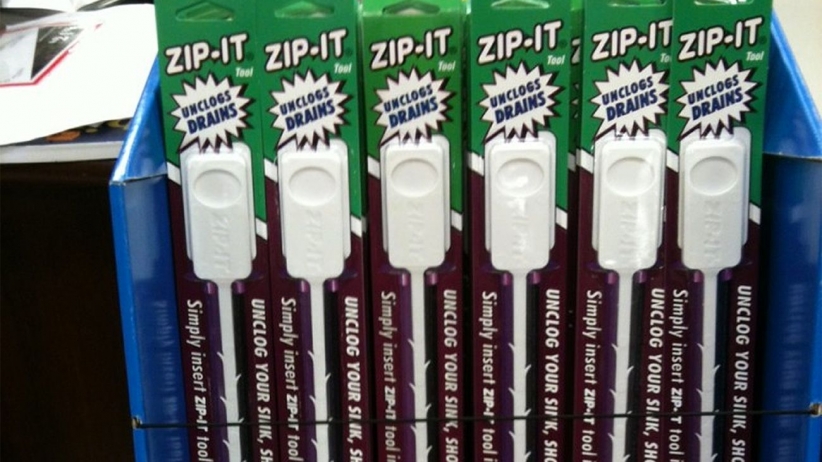
Does the licensing lifestyle sound too good to be true? It might. But, if you’re creative and you hustle, you can pitch and rent out your ideas for consumer products to companies with global distribution. In fact, I can tout the power of open innovation because I’ve practiced it myself.
And so has Gene Luoma, a lifelong independent product developer who hit it big with an incredibly simple household tool offering an enormous benefit. Using materials from his garage, Luoma prototyped the first Zip-It drain cleaner in less than a few minutes. Since he first licensed the idea and began receiving monthly royalty checks in 2000, he’s seen more than 33 million units sold!
When I met Luoma in 2007, I was struck by the similarities in our careers. He has licensed at least a dozen of his other ideas in addition to designing countless products to meet the needs of local businesses near his hometown, Duluth, Minn. But what I appreciate most about him is his attitude. Luoma is limited physically (due to a rare kind of muscular dystrophy), yet relentlessly positive. His can-do disposition has never waivered over the many years we’ve communicated.
What’s more, he has manifested his own destiny and inspired his children to do the same. I meet so many inventors who are consumed by what they can’t do or don’t know. Luoma shows it doesn’t have to be that way.
After growing up on a farm, where he constantly had to make due with what he had, and studying mechanical design and engineering at a vocational school, Luoma opened his own product-development company in 1978.
A wide variety of local companies approached him with their needs, and the result was many different inventions. For example, Luoma invented and patented a “blueberry cluster buster” for a company that needed a more efficient, gentler way of separating frozen clumps for its pie filling. When his disability prevented him from drawing back his archer’s bow, he designed a device that worked a like a caulking gun, to draw the weapon back for him. He also approached companies with his own ideas for products, which he designed by hand.
Clearly, Luoma is resourceful. The same philosophy extends to his work in inventing. When Luoma used to come e up with an idea, he would shop it around to different potential licensees, using only a disclosure document to protect him. (This was before the advent of provisional patent applications.)
If a company liked his idea and licensed it from him, it would…

